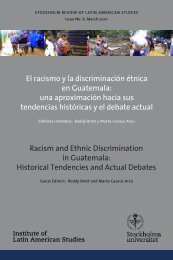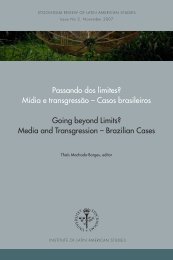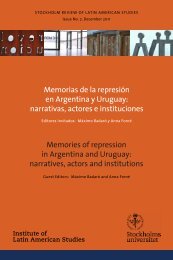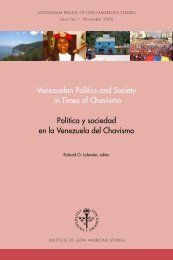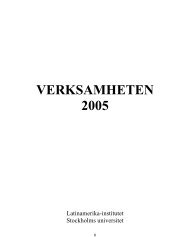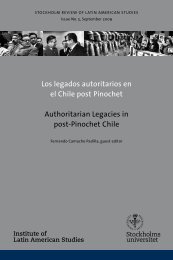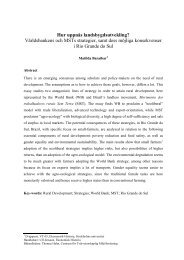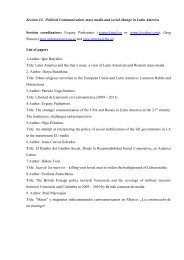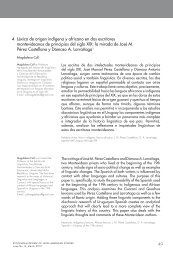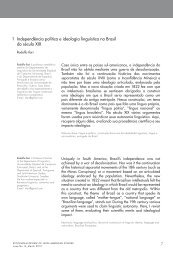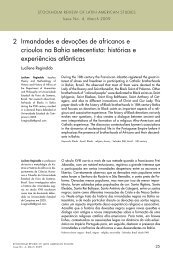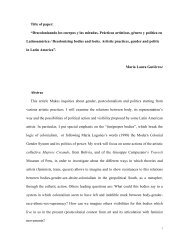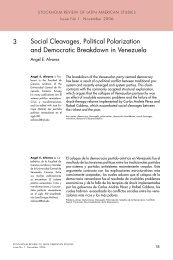Papers - Conference 2009 - Institute of Latin American Studies
Papers - Conference 2009 - Institute of Latin American Studies
Papers - Conference 2009 - Institute of Latin American Studies
Create successful ePaper yourself
Turn your PDF publications into a flip-book with our unique Google optimized e-Paper software.
down” (Renner 2004: 98). What becomes clear here is that MST‟s struggle is both local andglobal.To understand MST in both its local and global contexts, put in relation to the conceptualframework <strong>of</strong> consumption and empowerment, I find the Gramscian concept <strong>of</strong> hegemonyuseful. Hegemony, as understood in this paper, is about praxis and the mastering <strong>of</strong> history(Smith 2004: 217) and can be seen as closely related to what has earlier been mentioned asdiscursive practice. What is fundamental to the concept <strong>of</strong> hegemony, however, is “[…] arejection <strong>of</strong> the idea <strong>of</strong> the social person as object” (Ibid.). Thus, even though the dominantconsumption driven discourse may seem to leave individuals with no alternatives, Gramsciseems to be telling us differently. Since “[h]egemony is never absolute” (Karriem 2008: 1),what seems to be the only possible economic and political reality is, nevertheless, changeableand hence, challengeable; which means that there is space for social agency within discursiveand hegemonic structures.Drawing on this argumentation, hegemony becomes a helpful concept as one tries tounderstand social movements, how they come into existence, and the part they may playwithin what can be seen as a global movement <strong>of</strong> resistance and/or a movement urging for analternative globalization. MST can in this context be understood as a “counter hegemonicpolitical actor” (Karriem 2008) and, as such, one <strong>of</strong> many drivers <strong>of</strong> what Hans Abrahamsson(in Wennerhag et al. 2006: 23) calls “the second (or other) movement <strong>of</strong> globalization”(“globaliseringens andra rörelse”). Marc Becker speaks in similar ways <strong>of</strong> a “globalizationfrom below” (2007: 207).Globalization from below: Struggle for another worldWhat has become clear in this paper so far is that the landless workers in Brazil are far fromthe only ones struggling to get by on the margins <strong>of</strong> the neo-liberal consumption drivenglobalization. This is concretely expressed in “La Via Campesina”; an international peasantmovement in which MST shares their struggle with more than 150 rural social movementsfrom 56 countries in a large part <strong>of</strong> the world (Borras Jr. 2008: 260; La Via Campesina 2007).La Via Campesina (“The peasant‟s way”) defines itself as an autonomous, multicultural andpluralist movement. Its members consist <strong>of</strong> peasants, landless people, small- and mediumsizedproducers, indigenous people, rural women, rural youth and agricultural workers (LaVia Campesina 2007). The main agenda <strong>of</strong> La Via Campesina has since its becoming in 19935



